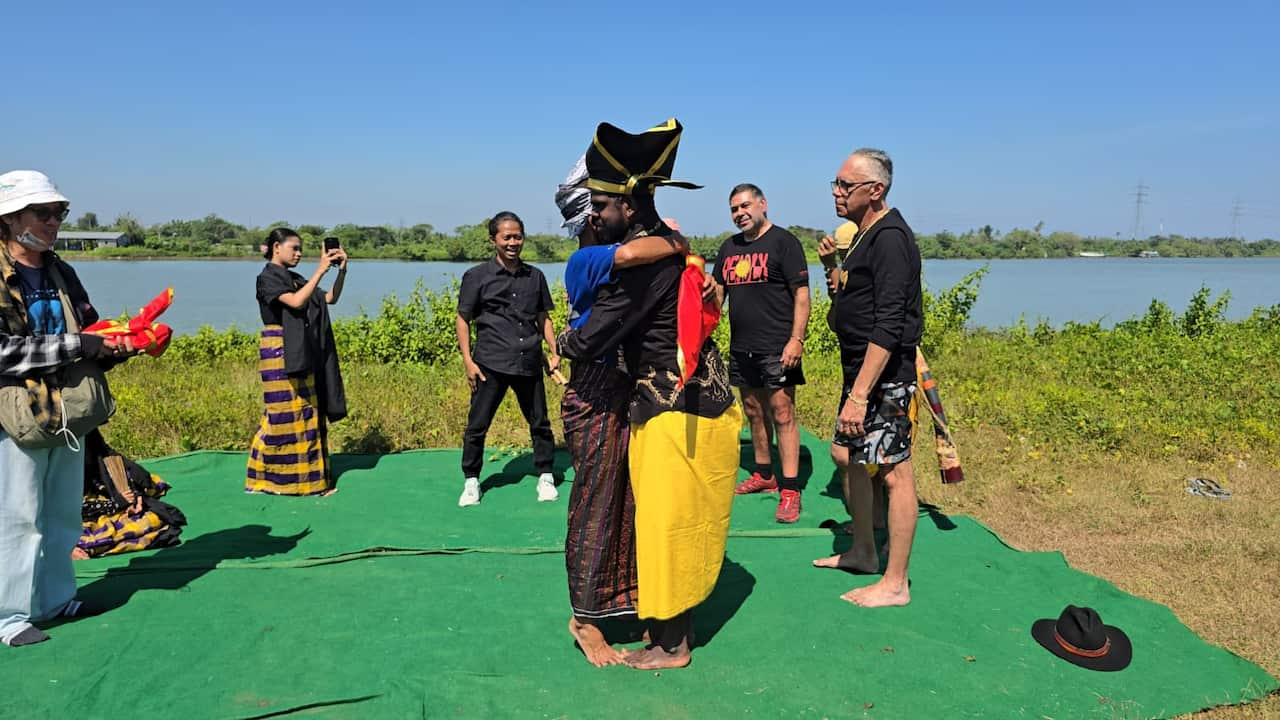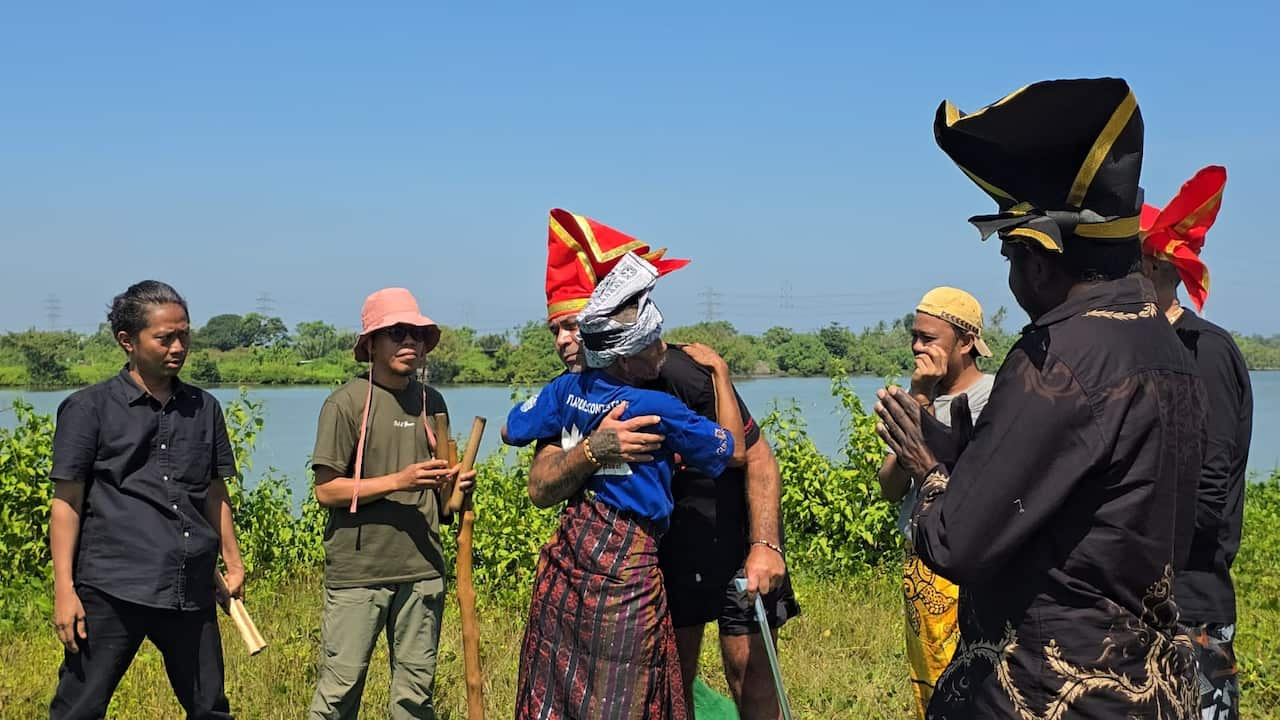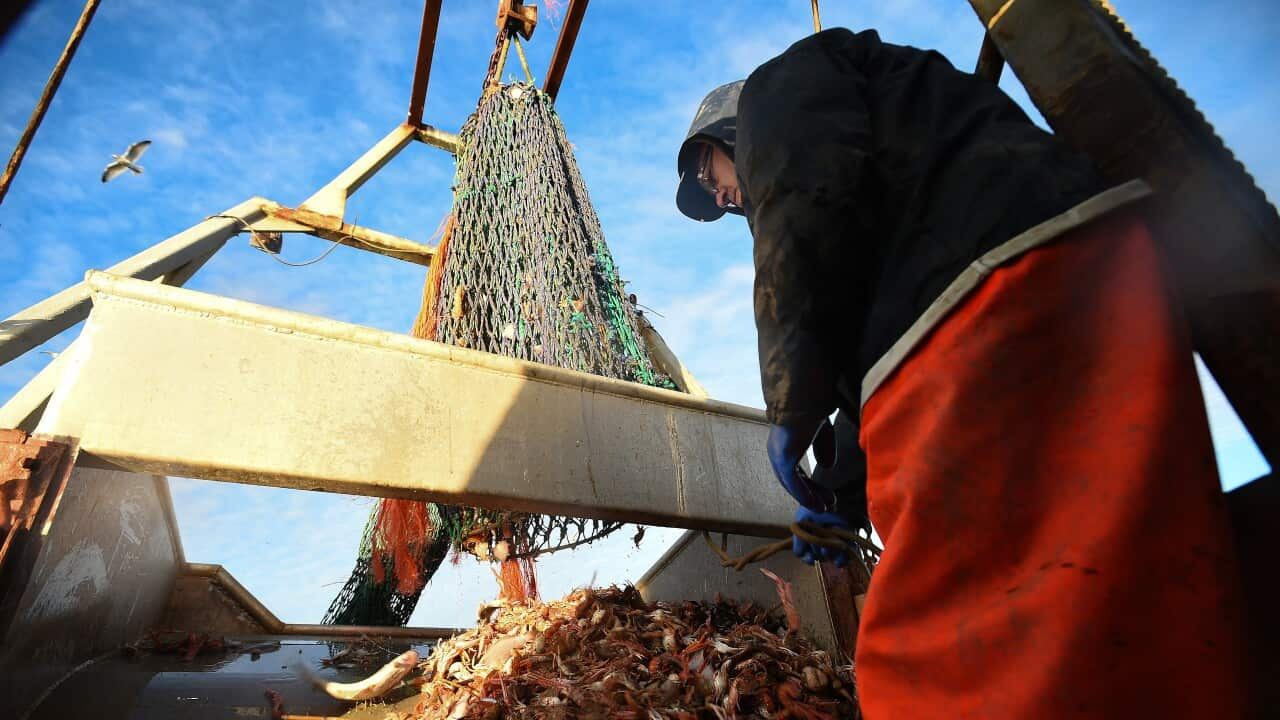The relationship between cucumber traders and Indigenous peoples in Australia involved long-standing historical exchanges, beginning with Makassar fishermen trading sea cucumbers for goods, which had a major impact on the local culture and language.
In this interview, Daeng Abdi Karya, an artist from Makassar, recounts a humanitarian initiative that successfully reunited families separated for more than a hundred years.
The initiative focuses on tracing the footsteps of a Makassar sailor named Husaing Daeng Rangka (also known as Yuching by the Yolngu community) who had two wives in Makassar and two in the Yolngu community, Australia.
After new immigration laws were enacted in 1906, Husaing was unable to return to Australia, so he was separated from his family there.
The tracing process is underpinned by Australian government archival records and, more importantly, by the “songlines” or traditional chants of the Yolngu tribe that hold the stories and memories of Makassar sailors.
Although on the Makassar side there are no similar records, the stories from the descendants of the sailors who were passed down orally became key. A team of artists and academics managed to identify a fifth descendant of Husain Daeng Rangka, from both the Makassar and Yolngu sides.

Daeng Serang Dakko (community elder in the Somba Opu Fortress Area) and David Yunupingu (black headband, is the fifth generation great-grandson of Husain Daeng Rangka or Yutjing, the last Makassar sailor who fished for traditional sea cucumbers in 1906, from a Yolngu wife in Elcho Island-Arnhem Land-Northern Territory) Credit: Louie Buana
This gathering was not only a family reunion, but also a sacred ritual attended by Husaing descendants from Makassar, descendants from the Yolngu tribe, and some Aboriginal elders from South Australia.
The ceremony was accompanied by classical music and dance of Makassar, as well as traditional Yolngu chants that reaffirmed the collective memory of both sides.

The meeting at Jeneberang River in Sulawesi. Daeng Serang Dakko hugs Uncle Lionel Lauch, nephew of Uncle Archie Roach. A Gunditjmara Kirrae Wurrung-Bundjalung, he lives on the Mornington Peninsula in Victoria, Australia. He is a spiritual healer and artist.. Credit: Abdi Karya
This reunion shows that the history of both countries exists not only in the formal record, but also lives on in folklore and oral traditions.
This story affirms the importance of recognizing and documenting Indigenous narratives that are often overlooked in the national education curriculum.
Daeng Abdi Karya hopes that stories like these will continue to be unearthed and immortalized through art, making them accessible to a wide audience and strengthening the connection between Indonesia and Australia.




